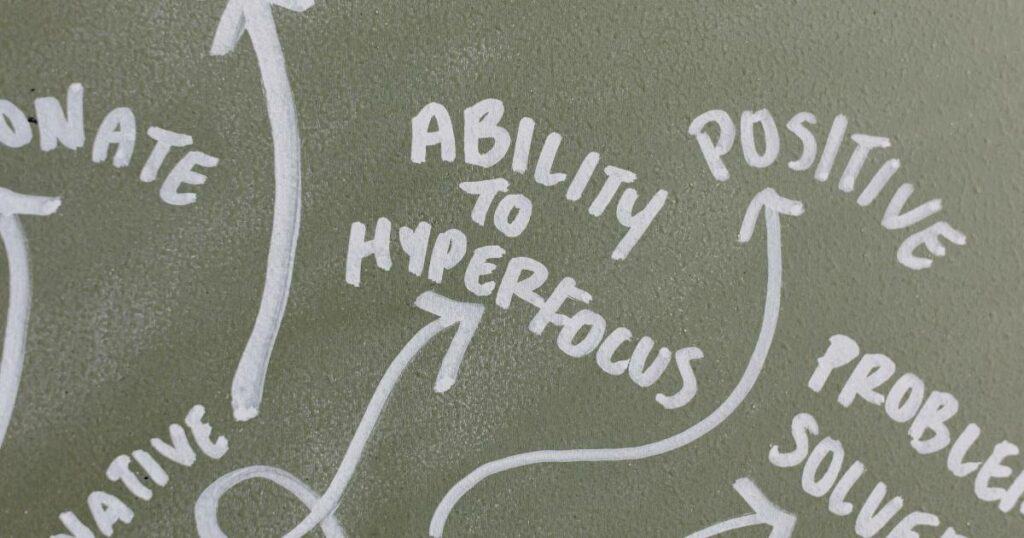Substance addictions, also known as chemical addictions, encompass a wide range of dependencies on various substances such as drugs, alcohol, or even prescription medications. These addictions can quickly spiral out of control, impacting every aspect of an individual’s life including their physical and mental well-being, relationships, and overall functioning. Understanding the reasons behind substance addictions, identifying triggers, and seeking appropriate help are crucial steps towards overcoming these formidable challenges. In this article, we will explore the underlying factors that contribute to substance addictions, uncover the triggers that perpetuate them, and discuss effective strategies to seek support on the path to recovery.
Reasons for Substance Addictions

Environmental factors also play a significant role in substance addiction. People who live in environments where drug use is normalized or readily available are more likely to develop an addiction. For instance, growing up in a household where drug or alcohol use is prevalent or being exposed to drug use among peers or within a community can contribute to the development of addiction. Additionally, people who work in high-stress environments, such as the medical profession or law enforcement, may use drugs or alcohol to cope with the demands of their job.
Genetics can also play a role in addiction. Certain genetic biomarkers can predispose individuals to addiction. For example, individuals with a family history of addiction may be more likely to develop an addiction.
Addiction is a disease that affects the brain’s reward system.
Prolonged substance use of alcohol or drugs can change the brain’s chemistry and structure, leading to cravings and compulsive drug-seeking behavior. This can make it difficult for individuals to quit using drugs or alcohol, even if they want to.
Substance addiction is a complex issue that can arise from various factors. These include trauma, underlying mental health issues, environmental factors, genetic factors, and changes in the brain’s chemistry and structure. These underlying issues must be addressed so people can receive adequate treatment and support to overcome addiction.
Mental Health Contributes to Addiction
Dual diagnosis refers to the presence of both a substance use disorder and a mental health disorder.
The prevalence of dual diagnosis is high, with estimates from 30% to 50% of people with substance use disorders having co-occurring mental health disorders.
The most common mental health disorders associated with addiction include depression, anxiety, PTSD, bipolar disorder, and personality disorders.

Another way mental health disorders contribute to addiction is through shared risk factors. Risk factors like genetics, environmental factors, and exposure to trauma can contribute to developing both mental health disorders and addiction. For instance, individuals with a family history of mental health disorders may be more susceptible to developing an addiction.
Dual Diagnosis Goes Both Ways
Additionally, addiction and mental health disorders can have a bidirectional relationship. Substance use can worsen symptoms of mental health disorders, and mental health disorders can increase the risk of addiction. For example, depression and anxiety can increase the likelihood of relapse in individuals with addiction.
It’s necessary to address both addiction and mental health disorders simultaneously to achieve successful treatment outcomes. Integrated treatment programs that address addiction and mental health disorders are most effective. These programs typically involve a combination of medication management, behavioral therapies, and support services.
Mental health disorders can contribute to addiction in several ways. These include self-medication, shared risk factors, and a bidirectional relationship between addiction and mental health disorders. Integrated treatment programs that address addiction and mental health disorders are most effective in achieving successful treatment outcomes.
What Are Addiction Treatment Triggers?
Triggers are external or internal cues that activate cravings or desire to use drugs or alcohol. Triggers can vary from person to person and can be unique to each individual’s experience with addiction. Some common triggers for addiction treatment include:
- Environmental Triggers: Environmental triggers refer to external cues in an individual’s surroundings that can trigger drug or alcohol use. This can include visiting places associated with past drug use, being around people who use drugs or alcohol, or being in high-stress environments.
- Emotional Triggers: Emotional triggers refer to internal cues that can trigger drug or alcohol use. This can include negative emotions like anxiety, depression, and stress, or positive emotions like excitement or celebration.
- Physical Triggers: Physical triggers refer to physical sensations that can trigger drug or alcohol use. This can include physical pain, fatigue, or hunger.
- Social Triggers: Social triggers refer to situations that can trigger drug or alcohol use. This can include peer pressure, social norms, or social anxiety.
In addiction treatment, identifying triggers is essential to developing effective relapse prevention strategies.
By recognizing triggers and developing healthy coping mechanisms to manage them, people in addiction treatment can avoid relapse & maintain their recovery.
Relapse Prevention Strategies
Some common relapse prevention strategies include developing healthy coping mechanisms. Exercise, mindfulness, hobbies or interests, and avoiding high-risk situations or environments are a few. Creating a support system through peer groups, therapy, or support groups can also be relevant to successful recovery.
Some addiction treatment programs may use trigger avoidance techniques like exposure therapy. This gradually exposes individuals to controlled environmental triggers, helping them develop healthy coping mechanisms. The coping mechanisms allow them to manage their cravings and desires to use drugs or alcohol.
Triggers can be external or internal cues that activate cravings or desire to use drugs or alcohol. By identifying triggers and developing healthy coping mechanisms, individuals in addiction treatment can avoid relapse and maintain their recovery. Common relapse prevention strategies include developing healthy coping mechanisms and avoiding high-risk situations or environments. Developing a support system through therapy or support groups is also helpful.
Addiction Treatment Programs
Effective addiction treatment in FL typically involves a combination of detox, residential addiction treatment, partial hospitalization programs (PHP), intensive outpatient programs (IOP), and outpatient programs. A detox program is the first step in addiction treatment and involves the safe withdrawal from drugs or alcohol. Residential addiction treatment provides a supportive and structured environment to receive treatment for addiction and mental health disorders. PHP and IOP programs offer a higher level of care than traditional outpatient programs. They can help individuals transition back to their daily lives while receiving intensive treatment.
Inpatient Programs
- Detox Programs: Detox programs are typically the first step in addiction treatment. They involve the safe and medically supervised withdrawal from drugs or alcohol. Detox programs are designed to manage the physical symptoms of withdrawal and ensure the safety and comfort of individuals during this process.
- Residential Addiction Treatment: Residential addiction treatment provides a structured and supportive environment to receive treatment for their addiction and mental health disorders. These programs typically involve a range of therapeutic modalities. They incorporate individual, group, behavioral, and holistic therapies like meditation, yoga, or art therapy. Residential programs also provide 24-hour medical and clinical support to ensure the safety and well-being of individuals in treatment.
Outpatient Programs
- Partial Hospitalization Programs (PHP): Partial hospitalization programs (PHP) offer a higher level of care than traditional outpatient programs and can be an alternative to residential addiction treatment. PHP programs typically involve 4-6 hours of daily therapy, 5-7 days a week, and provide a range of therapeutic modalities, including individual therapy, group therapy, and behavioral therapies. Individuals in PHP programs may live at home or in a sober living facility.
- Intensive Outpatient Programs (IOP): Intensive outpatient programs (IOP) offer a flexible treatment option for individuals who need more support than traditional outpatient programs but do not require 24-hour medical supervision. IOP programs typically involve 3-5 hours of treatment, 3-5 days a week, and provide a range of therapeutic modalities, including individual, group, and behavioral therapies.
- Outpatient Programs: Outpatient programs provide ongoing treatment and support for individuals in recovery. These programs typically involve 1-2 hours of treatment, 1-2 days a week. They offer a range of therapeutic modalities, including individual therapy, group therapy, and behavioral therapy. Outpatient programs are an excellent option for individuals who have completed residential or intensive outpatient treatment and need ongoing support to maintain their recovery.
Therapeutic Modalities Used Within Programs
These addiction treatment programs offer a range of therapeutic modalities, including individual, group, behavioral, and holistic therapies. Behavioral therapies, like cognitive-behavioral therapy (CBT) and dialectical behavior therapy (DBT), have proven effective in treating addiction and dual-diagnosis disorders. These therapies aim to change negative thought patterns and behaviors associated with addiction and promote healthy coping mechanisms.
Addiction treatment programs are designed to help individuals control substance misuse disorders by providing a range of therapeutic modalities and support services. Detox programs, residential addiction treatment, PHP, IOP, and outpatient programs offer various levels of care to meet the unique needs of individuals in recovery. By addressing underlying issues and developing healthy coping mechanisms, individuals in addiction treatment can overcome their addiction and achieve lasting recovery.
What Happens After Rehab?
After completing an addiction treatment program, individuals in recovery face new challenges as they navigate life outside of a structured treatment environment. While completing addiction treatment in FL is significant, recognize that recovery is a long journey. People must take steps to maintain their sobriety.
Here are some things that can happen after rehab:
- Aftercare Planning: Aftercare planning is integral to addiction treatment and involves developing a plan for ongoing support and care after leaving a treatment program. Aftercare planning typically includes identifying support systems, developing relapse prevention strategies, and establishing continuous therapy or support group participation.
- Sober Living: Sober living environments provide a supportive and sober environment for individuals in early recovery. These homes offer a structured environment that provides support and accountability to help individuals transition from treatment to independent living.
- Outpatient Treatment: Outpatient treatment provides ongoing therapy and support for individuals in recovery. These programs are an excellent option for individuals who have completed residential or intensive outpatient treatment and need continuing help to maintain their recovery.
- Support Groups: Support groups like Alcoholics Anonymous (AA) and Narcotics Anonymous (NA) provide a community of individuals in recovery who share similar experiences and struggles. These groups offer a safe and supportive environment to discuss challenges and provide support to one another.
- Continued Therapy: In individual or group settings, Continued therapy can be an essential component of ongoing recovery. Therapy can help individuals identify and manage triggers and develop healthy coping mechanisms to prevent relapse.
Recovery is a journey that requires ongoing effort and commitment.
Developing a support system, establishing healthy habits & routines, and prioritizing self-care are all components of maintaining sobriety after rehab.

Addiction Treatment Program in Florida
Substance misuse disorders are complex and multifaceted. They can result from various factors, including genetics, mental health disorders, environmental factors, and social pressures. Effective addiction treatment involves a combination of detox, residential addiction treatment, PHP, IOP, outpatient programs, and recovery management. Identifying triggers and developing healthy coping mechanisms are essential to prevent relapse. With the proper treatment and support, individuals with substance misuse disorders can end their addiction and achieve lasting recovery.
If you or a loved one is struggling with substance use disorder, take action today and seek help from Olympic Behavioral Health in West Palm Beach, FL. Explore IOP, PHP, and outpatient programs provide a range of therapeutic modalities and support services to help you recover from addiction and rebuild your life. Our family-level support system offers a safe and supportive environment to help you achieve lasting recovery. Don’t let addiction control your life any longer. Contact Olympic Behavioral Health today and take the first step towards a healthier, happier future.

Share This Post



